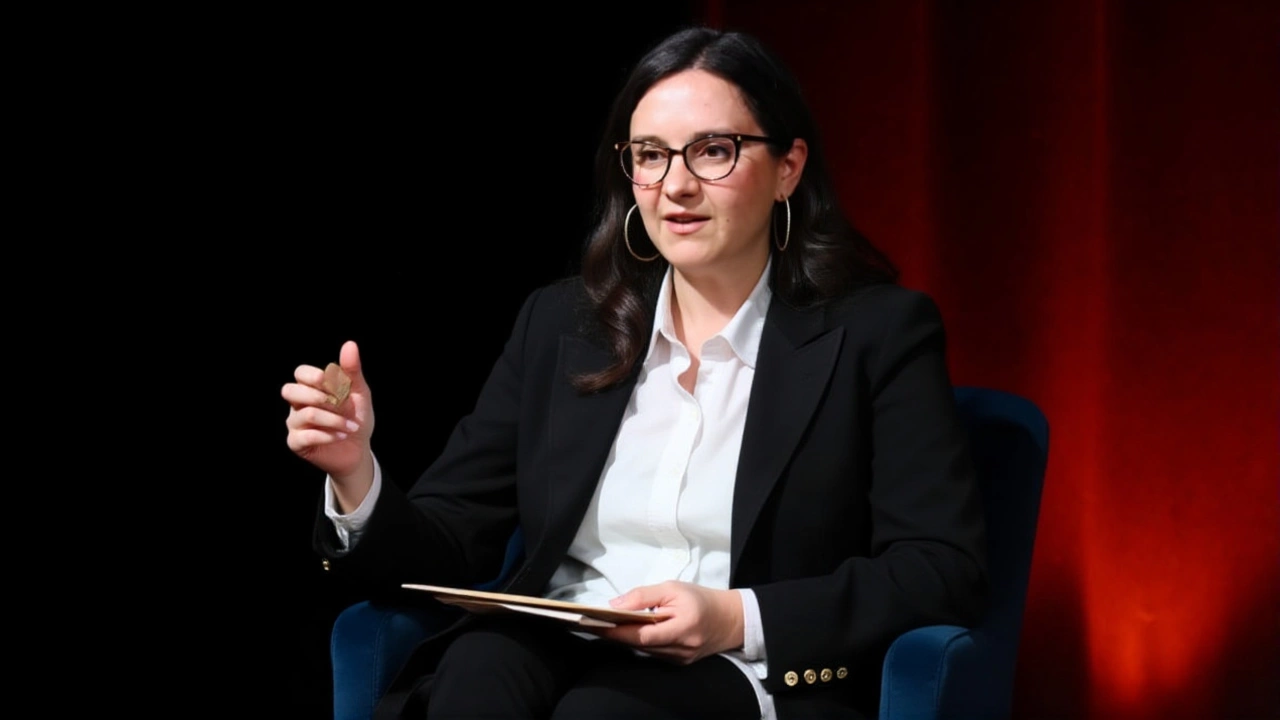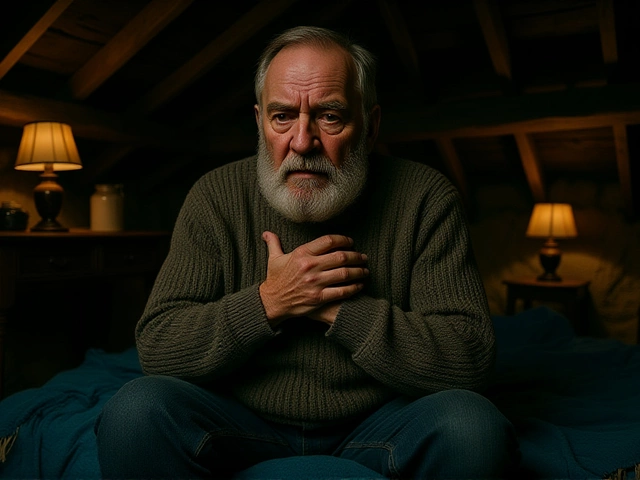On October 7, 2025New York City, Paramount Skydance announced the appointment of Bari Weiss as the new editor‑in‑chief of CBS News and the simultaneous acquisition of her subscription‑based outlet, The Free Press. The move, framed as a strategic overhaul of the network’s editorial direction, instantly sent ripples through the newsroom and the broader media landscape.
Background: CBS News and Its Leadership Traditions
For more than six decades, CBS News has been a bastion of mainstream broadcasting, known for a newsroom culture that emphasizes objectivity, fact‑checking, and a relatively centrist editorial stance. In 2023, the network reported an average weekday viewership of roughly 3.5 million, a modest decline from its 2018 peak of 4.2 million. That same year, CBS announced a modest 5 % budget increase for investigative programming, hoping to stave off audience erosion.
Until now, the top editorial job has been filled by career journalists who rose through the ranks. The sudden insertion of an outside commentator—particularly one as outspoken as Weiss—marks the most dramatic break from precedent since the 1990s, when Dan Rather stepped down amid the “60 Minutes” scandal.
The Paramount Skydance Deal and Its Components
The acquisition package was unveiled during a brief press conference on the CBS Television City lot in Los Angeles. Oliver Darcy, a media reporter for NBC News, and GOP strategist Matt Gorman were invited to dissect the strategy.
According to the filing, Paramount Skydance will pay $45 million in cash for The Free Press, plus a 15 % equity stake in the newly formed news joint venture. The transaction also includes a five‑year licensing agreement that allows CBS to syndicate select Free Press content across its digital platforms.
Host Tom Llamas asked Darcy whether the deal signaled a larger trend of legacy broadcasters buying into niche, ideologically driven outlets. Darcy replied, “It’s a gamble, but one that could pay off if the audience appetite for contrarian commentary continues to grow.”
Inside the CBS News Reaction
The newsroom’s mood, as reported by sources who wished to remain anonymous, has been one of palpable unease. “There’s a sense that the ship is about to change course, and not everyone’s sure where it’s heading,” one senior producer told me.
Darcy described the atmosphere as “uneasy”, noting that Weiss’s reputation for “anti‑woke” and “anti‑DEI” commentary clashes sharply with the newsroom’s recent diversity initiatives, which have boosted minority staff representation from 29 % in 2020 to 36 % this year.
Adding fuel to the fire, Weiss, on the day of her appointment, declared on a live interview, “The far left loathes America.” Darcy characterized the line as “quite the statement for someone who’s about to oversee an institution that has long prided itself on impartiality.”
Potential Editorial Shifts Under Weiss
What will change, and how quickly? Analysts are split. Some argue that Weiss will focus on high‑impact investigative pieces that challenge prevailing narratives—think a revived “60 Minutes” segment that scrutinizes tech‑giants under the banner of “cultural accountability.” Others fear a more immediate re‑tooling of daily newscasts, with a spotlight on stories that question “woke” policies in education and corporate governance.
One scenario envisions Weiss taking a hands‑on role, reviewing every lead for the 6 p.m. broadcast and personally approving any segment that touches on DEI. If so, the network could see a shift in story selection that prioritizes economic‑focused reporting over cultural commentary.
Alternatively, Weiss might adopt a distant oversight model, delegating day‑to‑day decisions to the executive producer of “CBS Evening News” while steering the overall brand strategy toward audiences disillusioned with mainstream media. In that case, the most visible change could be a re‑branding campaign that emphasizes “truth‑seeking journalism without the spin.”
What This Means for the Media Landscape
Paramount Skydance’s move arrives at a time when traditional broadcasters are wrestling with streaming competition and a fragmented ad market. Nielsen data from Q2 2025 shows that broadcast news viewership is down 12 % from a year earlier, while digital‑only news platforms have seen a 27 % increase in monthly active users.
By marrying a legacy network with a contrarian digital outlet, the conglomerate hopes to capture both the lingering broadcast audience and the younger, subscription‑savvy crowd that gravitates toward niche commentary. If successful, the model could inspire similar acquisitions, such as the rumored interest of Warner Bros. Discovery in a partnership with a right‑leaning opinion site.
Critics warn that such consolidation risks further polarizing the news ecosystem, reducing the space for middle‑ground reporting. Media ethicist Dr. Lina Patel of Columbia Journalism School notes, “When a network’s top editor openly aligns with a partisan viewpoint, it challenges the principle of editorial independence that underpins public trust.”
Future Outlook and Open Questions
Key questions remain unanswered: Will Weiss retain her role at The Free Press, or will she divest to avoid conflicts of interest? How will advertisers react to potential shifts in audience demographics? And perhaps most importantly, will CBS News’s long‑time viewers stay tuned, or will they migrate to alternatives that promise a steadier hand?
The next few months will be telling. A pilot episode of a revamped “60 Minutes” featuring Weiss as a guest host is slated for early 2026, and internal surveys suggest that 58 % of CBS News staff are considering job changes if the editorial direction “drifts too far.” The stakes are high, and the industry is watching with bated breath.
Frequently Asked Questions
How might Bari Weiss’s anti‑woke stance affect CBS News’s coverage of social issues?
If Weiss applies her criticism of DEI programs, stories that highlight systemic racism or gender equity could receive less airtime or be framed with a skeptical lens. Expect a tilt toward reporting that questions the effectiveness of such initiatives, potentially reshaping public perception of these topics.
What does the acquisition mean for The Free Press’s editorial independence?
The Free Press will now operate under the corporate umbrella of Paramount Skydance, which could impose financial or strategic constraints. However, the agreement grants Weiss a 15 % equity stake, suggesting she may retain significant influence over its content direction.
Will CBS News’s audience numbers likely rise or fall under the new leadership?
Analysts are split. A portion of the audience that feels alienated by mainstream narratives may tune in, potentially offsetting losses from traditional viewers who reject a partisan tone. Early polls indicate a possible 4‑6 % net shift in viewership within the first year.
How are advertisers reacting to the announcement?
Major advertisers, including automotive and consumer‑goods brands, have issued cautious statements, citing a need to see how editorial changes manifest before committing additional spend. Some political advertisers, however, have expressed enthusiasm for reaching a more ideologically aligned audience.
What timeline should viewers expect for any programming changes?
A pilot revamp of “60 Minutes” featuring Weiss as a guest host is slated for early 2026, with broader schedule adjustments likely rolling out over the next 12‑18 months as the new editorial policies take hold.





